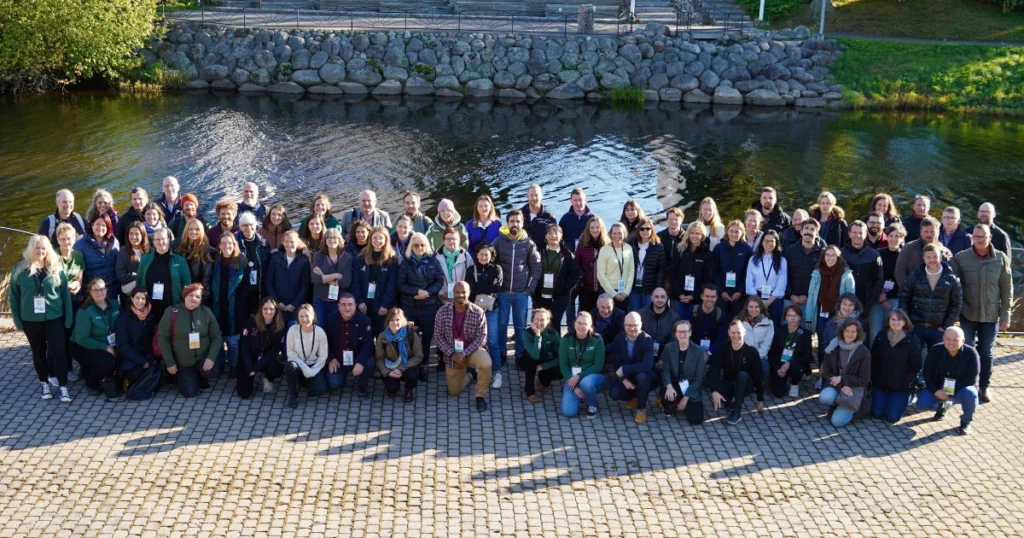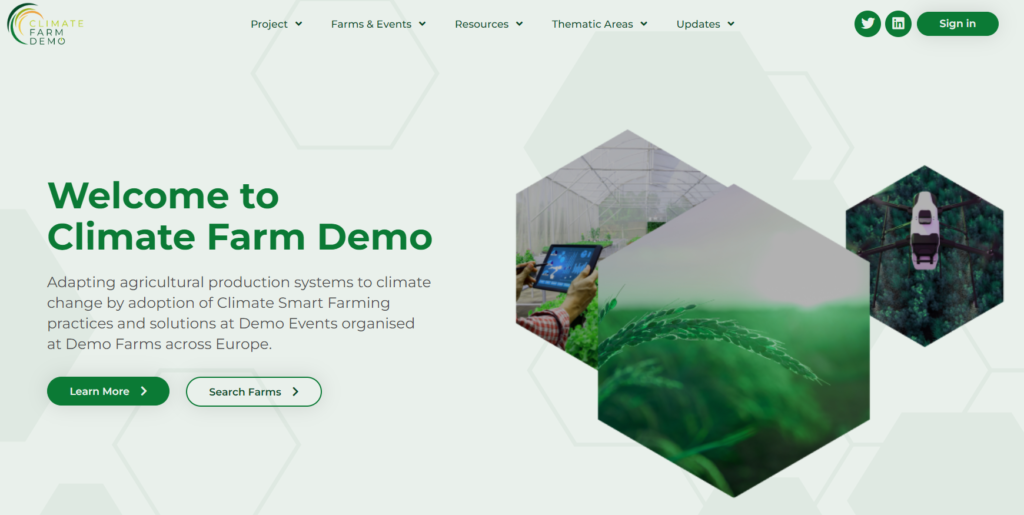Seinäjoki, Finland — 23–25 September 2025
Over 90 partners from across Europe gathered in Seinäjoki, Finland, for the 2025 Climate Farm Demo Annual Meeting, hosted by ProAgria.
Over the course of three days, farmers, advisors, and researchers exchanged ideas, shared progress, and explored ways in which Climate Farm Demo results can inspire real climate action.
“Every time we meet in person, we can feel how this project is growing — not just in numbers, but in meaning,” said Christine Berger, Project Coordinator from IDELE.
“Climate-smart farming is not a concept on paper anymore — it’s something partners are implementing, adapting and making work for real farmers across Europe.”
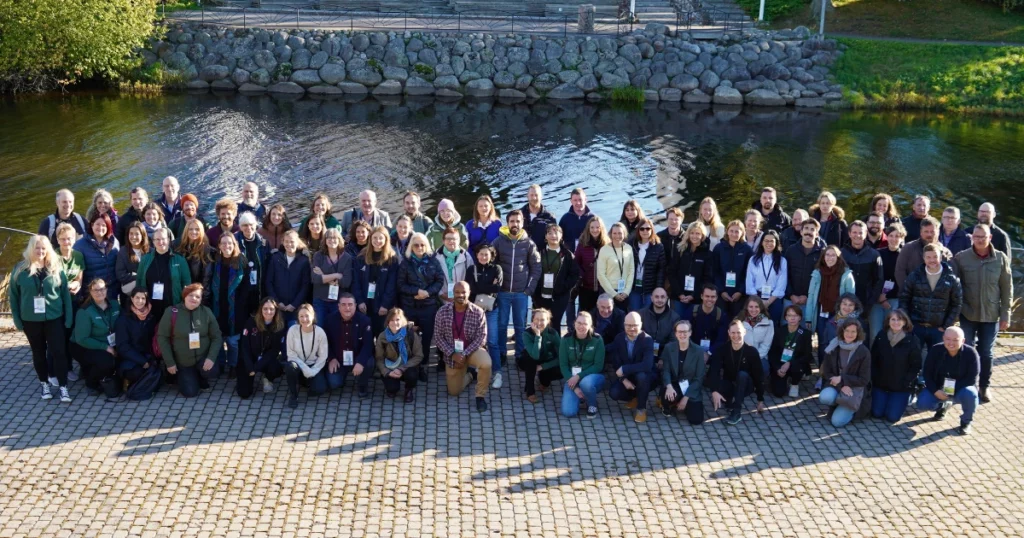
All participants of the 3rd Climate Farm Demo Annual Meeting in Finland
Day 1 — Welcome, Impact and the Power of Exploitation
Jussi Juhola, the Chief Operating Officer of the Association of ProAgria Centres, and Terhi Välisalo, the Development Manager at ProAgria South Ostrobothnia and the Rural Women’s Advisory Organization, opened the meeting with welcoming words.
The coordination team, consisting of Christine Berger (IDELE), Pauline Gay, and Pierre Andong (ACTA), facilitated the session and set an engaging tone for the days ahead. Participants joined a lively icebreaker, reviewed project milestones, and took part in new interactive activities. These included a photo contest for the most beautiful demo image, a matching wall for cross-visit planning, and idea posters that captured contributions throughout the meeting.
The opening plenary continued with an impact session led by Christine Berger and Romane Le Guyader (IDELE). They presented a typology of European farming systems and discussed how Climate Farm Demo contributes to national and regional climate goals.
In the afternoon, the focus shifted to exploitation with a hands-on workshop led by Isidora Čolić (BioSense Institute). After a brief introduction to exploitation in Horizon Europe, participants engaged in a “World Café” exercise at seven tables, each focusing on different topics such as demo events, tools, rewarding mechanisms, and scaling strategies.
John Greaney (Teagasc), Elena Bortolazzo (CRPA), Laure Triste (ILVO), Sladjana Blažević (BioSense Institute), Anaïs L’Hôte (IDELE), Maria Pereira da Silva (Consulai), and Julia Pazmiño Murillo (Ecologic Institute) facilitated lively discussions about applying project results in practice. A gallery walk and an “Exploitation Bingo” game added creative energy to the session.
The day concluded with farm demo visits around Seinäjoki, followed by an informal evening where partners enjoyed local products from 27 European countries, networked, and enjoyed a sauna, true to Finnish tradition.
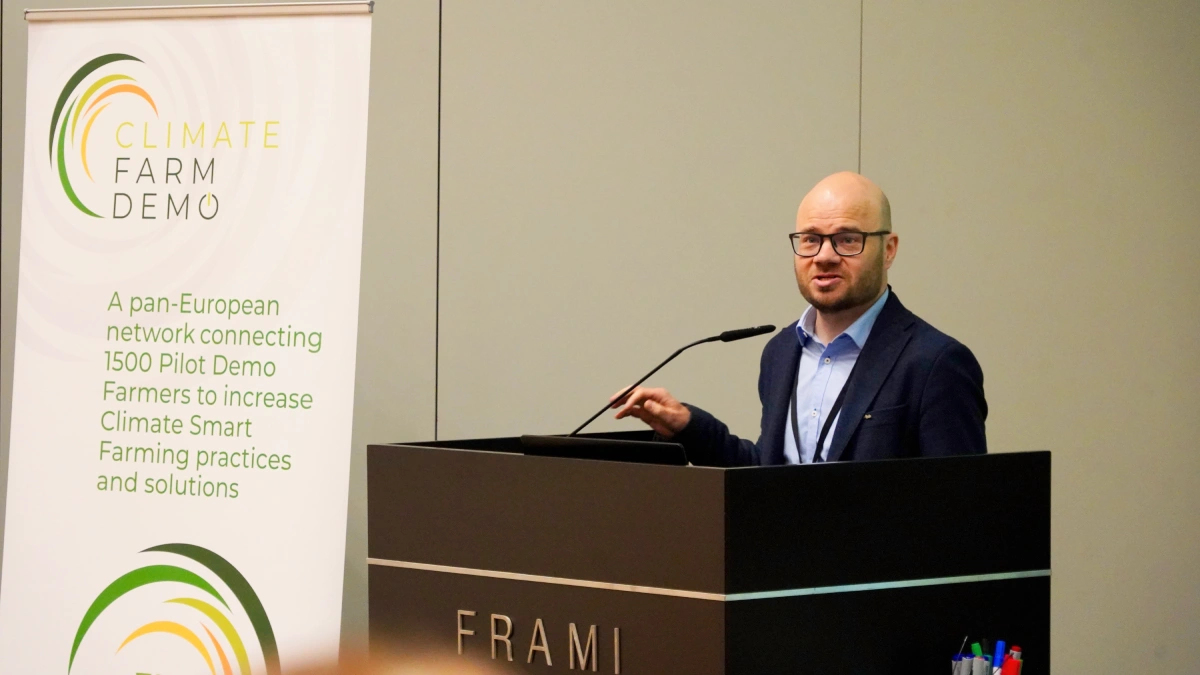
Jussi Juhola
the Chief Operating Officer of the Association of ProAgria Centres
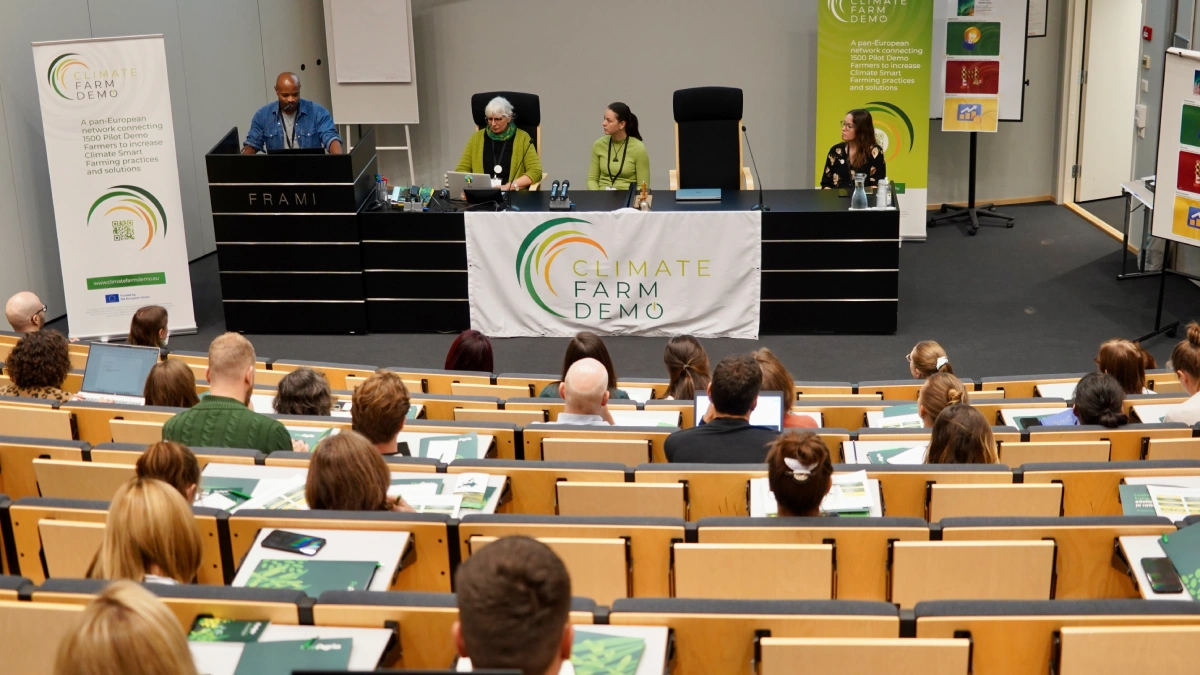
Opening session
(from the left: Pierre Andong, Christine Berger, Romane Le Guyader, Pauline Gay)
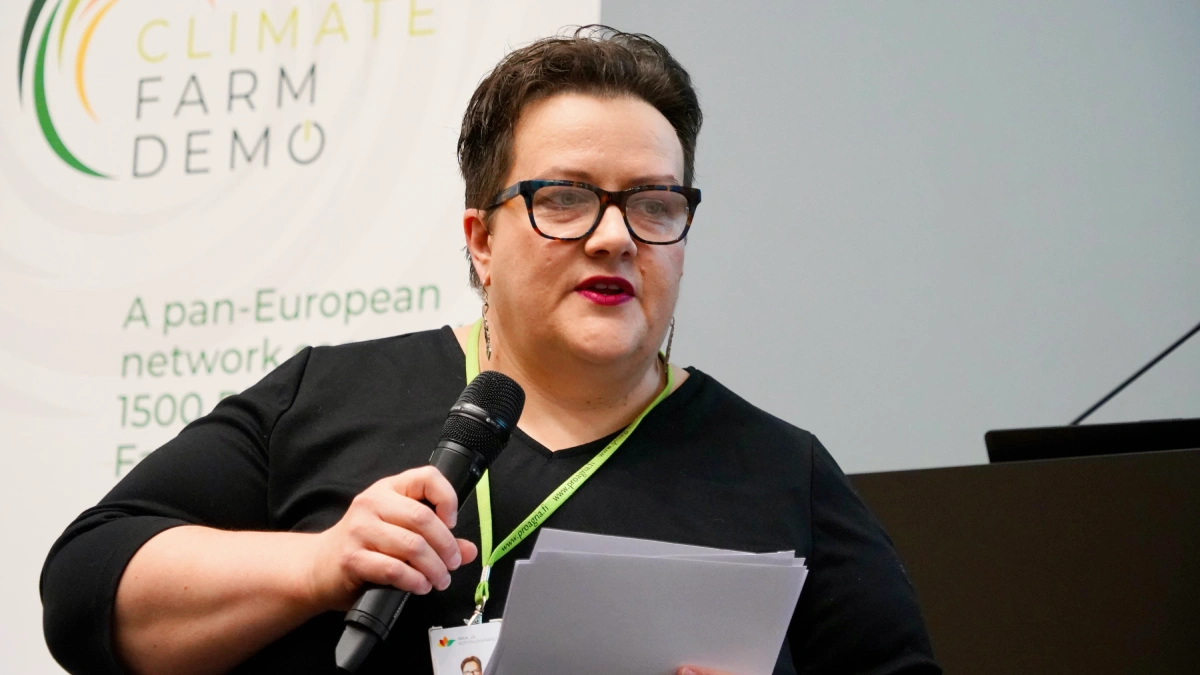
Terhi Välisalo
, the Development Manager at ProAgria South Ostrobothnia and the Rural Women’s Advisory Organization
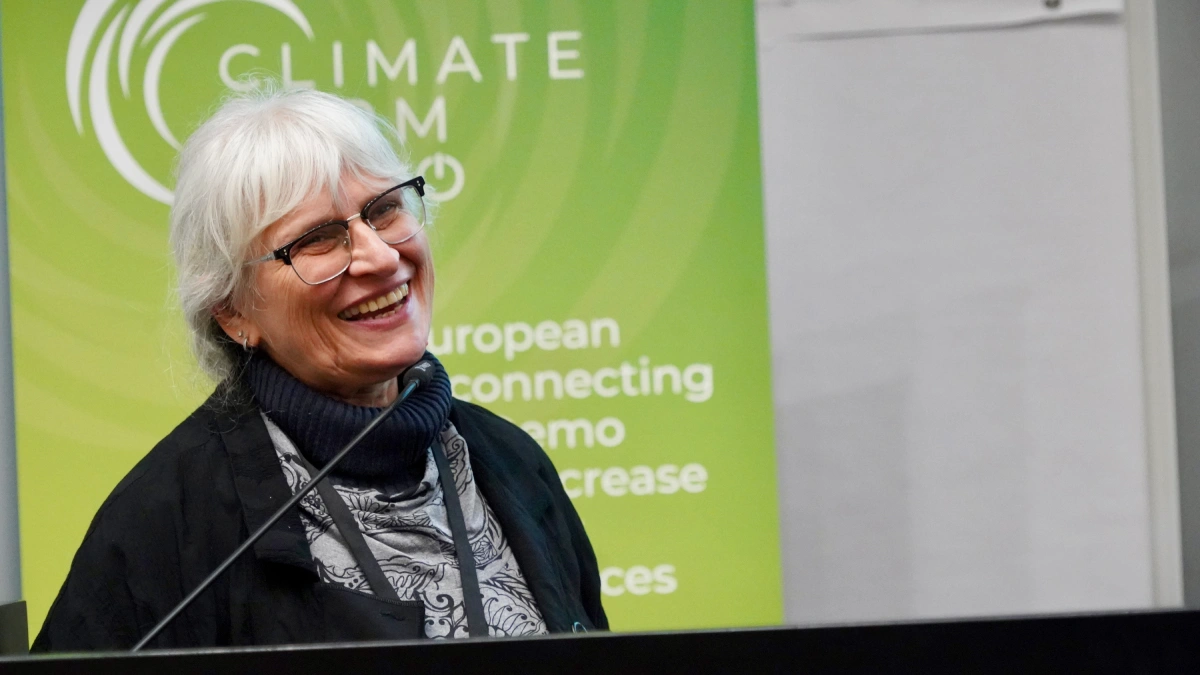
Climate Farm Demo Project Coordinator Christine Berger
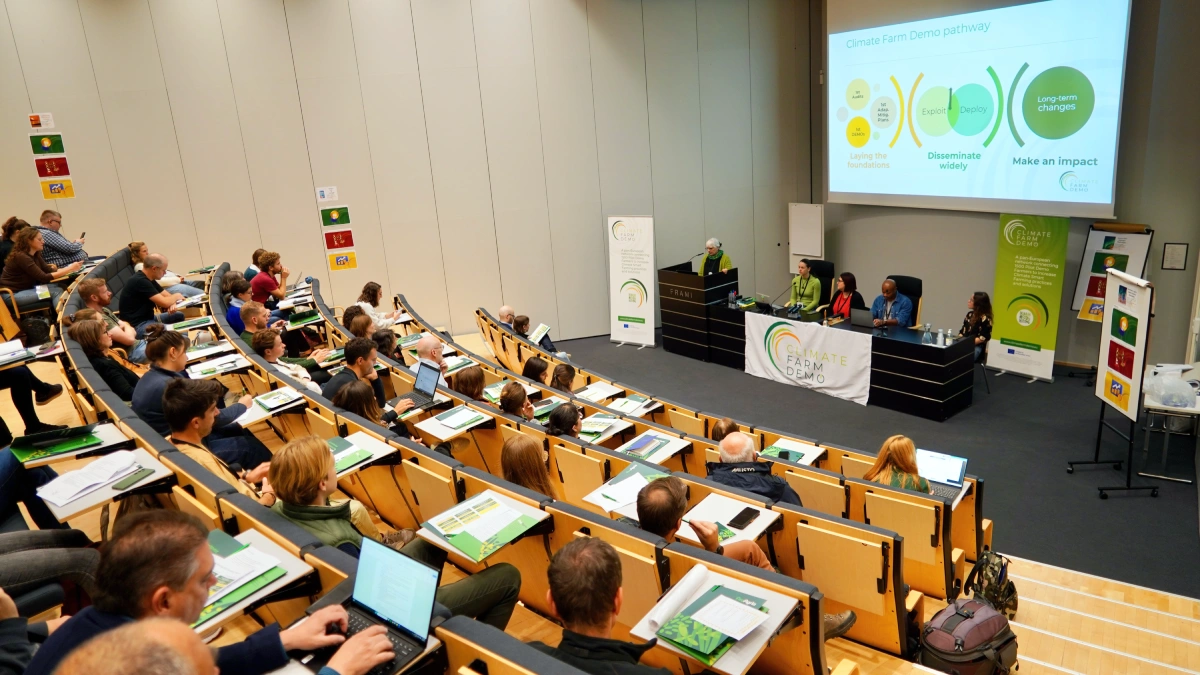
Opening session (from the left: Christine Berger, Romane Le Guyader, Elena Bortolazzo, Pierre Andong, Pauline Gay)
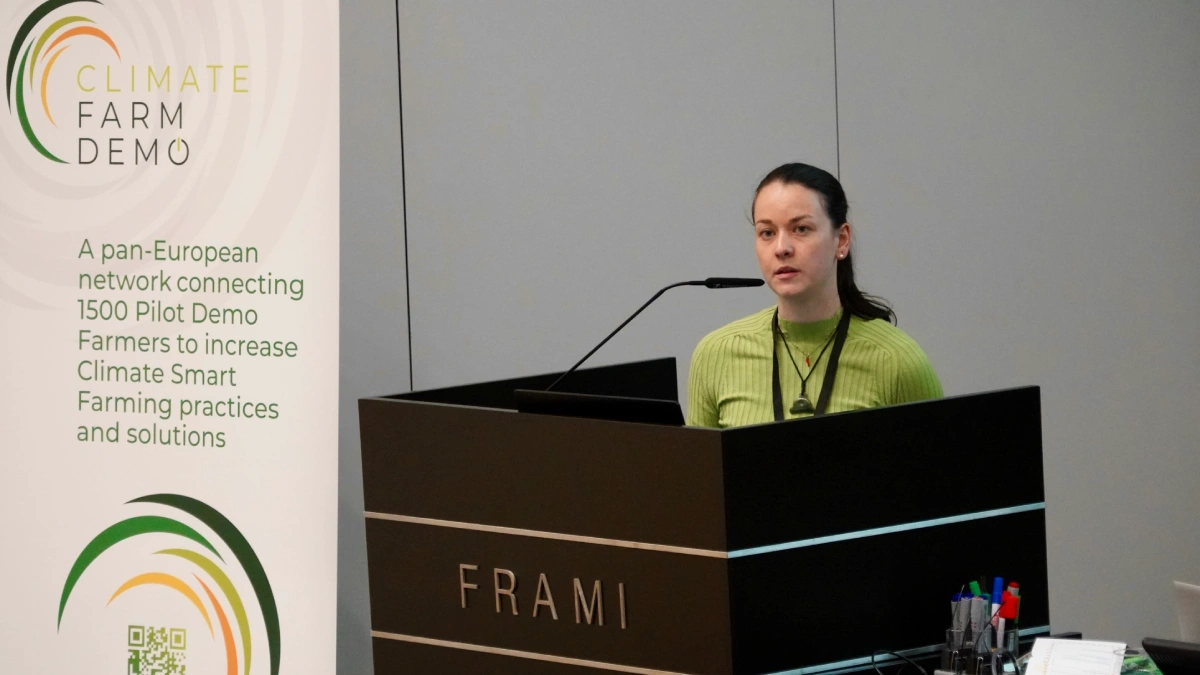
Opening session, Romane Le Guyader
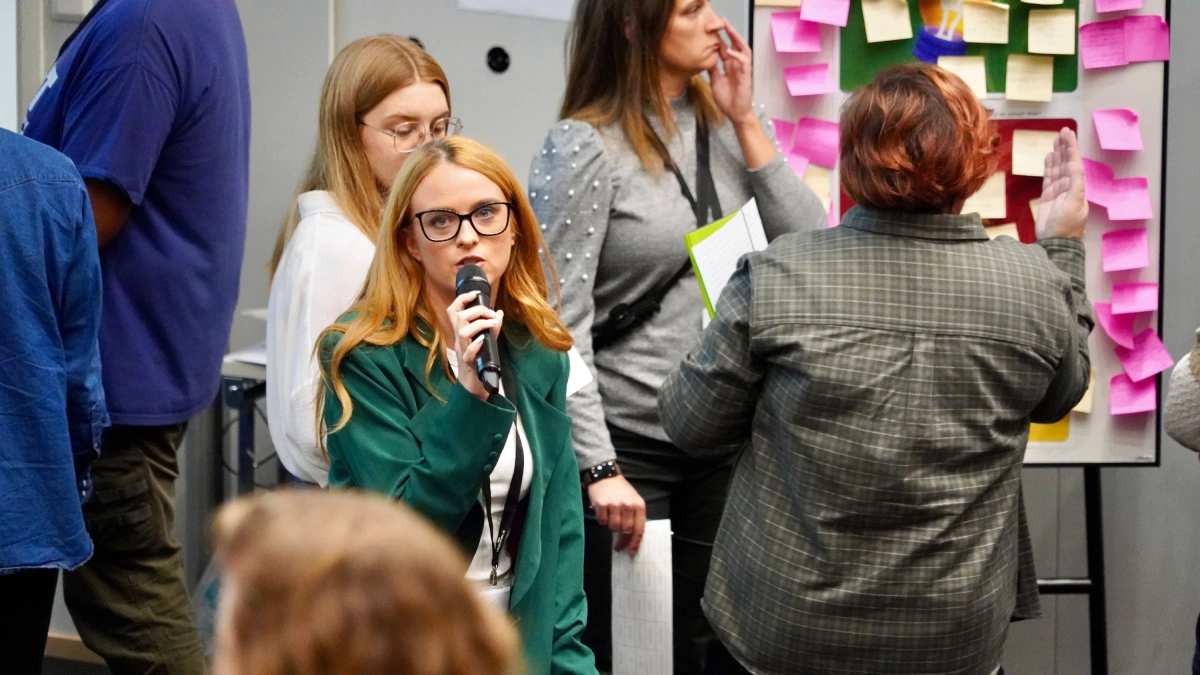
Exploitation workshop, Isidora Čolić
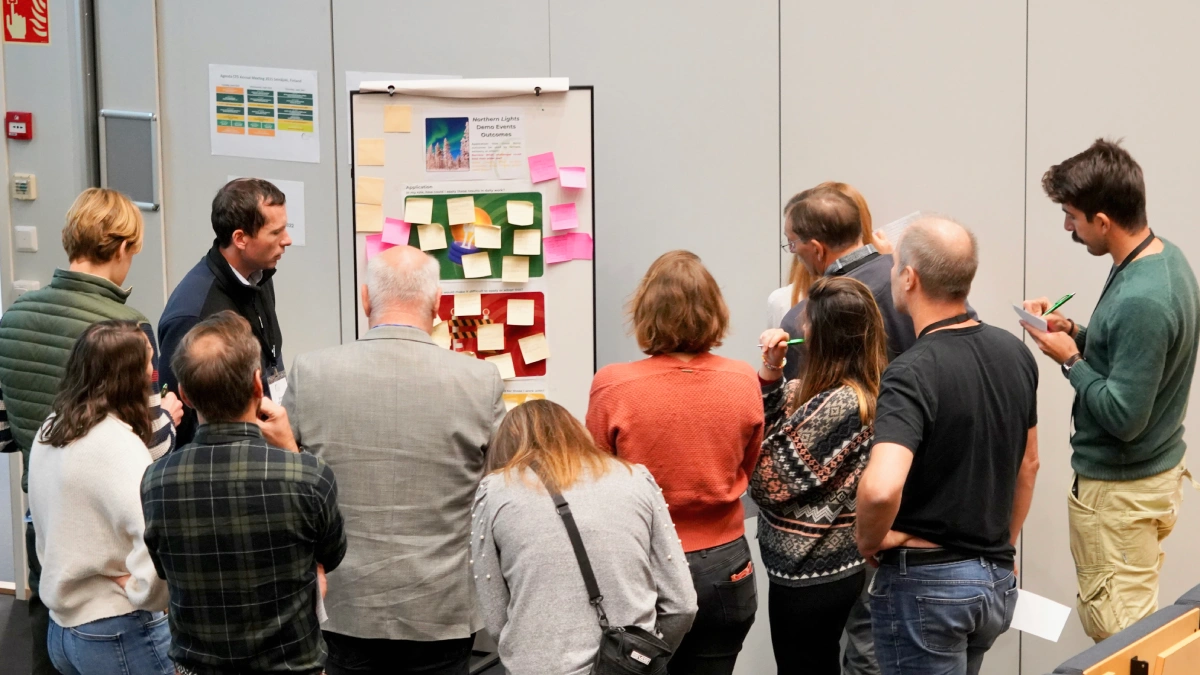
Exploitation workshop, John Greaney
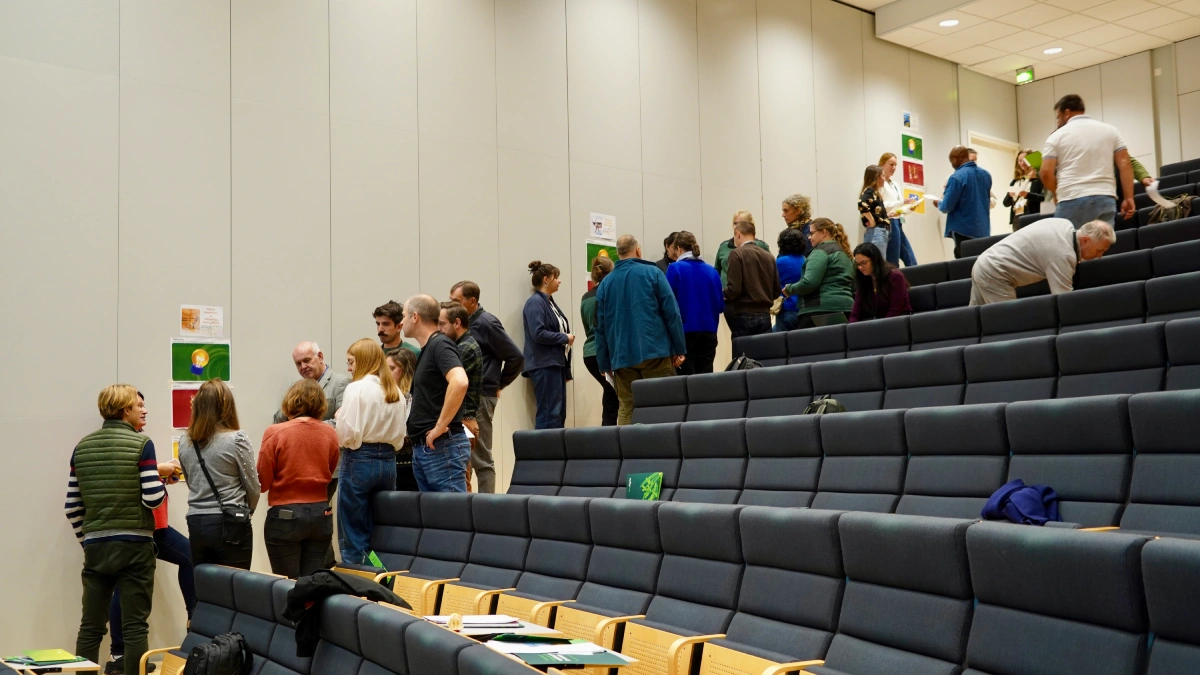
Exploitation workshop, group work
Day 2 — Rewarding Mechanisms and Knowledge in Motion
The second day began with a short general assembly facilitated by Pierre Andong, followed by a session dedicated to rewarding mechanisms.
Beatrice Croce (ELO), Julia Pazmiño Murillo (Ecologic Institute), Henna Latvala (ProAgria Finland), and Pascal Python (Agridea, Switzerland) gave presentations on how national and regional programs encourage farmers to adopt climate-friendly practices. The group then contrasted Finland’s experience with sustainability programs and carbon farming agreements with Switzerland’s AgroImpact initiative, which certifies farm-level carbon footprints and reinvests climate premiums in value chains.
Laurène Lebelt (Climate-KIC) and Simon Martel (I4CE) concluded the session by outlining the project’s next steps in developing Rewarding Mechanism tools and training resources. Learn more about Rewarding Mechanisms here.
In the afternoon, partners joined four knowledge exchange parallel sessions focused on practical applications. Christine Berger and Isidora Čolić led a role-playing exercise on transforming project results into business opportunities. Richard Lloyd (Innovation for Agriculture)explored the use of AI and data in herd management. Elena Bortolazzo and Anaïs L’Hôte reviewed effective adaptation and mitigation measures. Laurène Lebelt and Simon Martel guided a workshop on building capacity around rewarding mechanisms.
A second round of demo visits followed, and the day ended with a social dinner featuring traditional Finnish cuisine and lively discussion.
“The value of these meetings lies in the exchange,” said Pauline Gay, Europe Director at ACTA.
“When advisors, scientists and farmers come together, new ideas are born — and that’s where real innovation starts.”
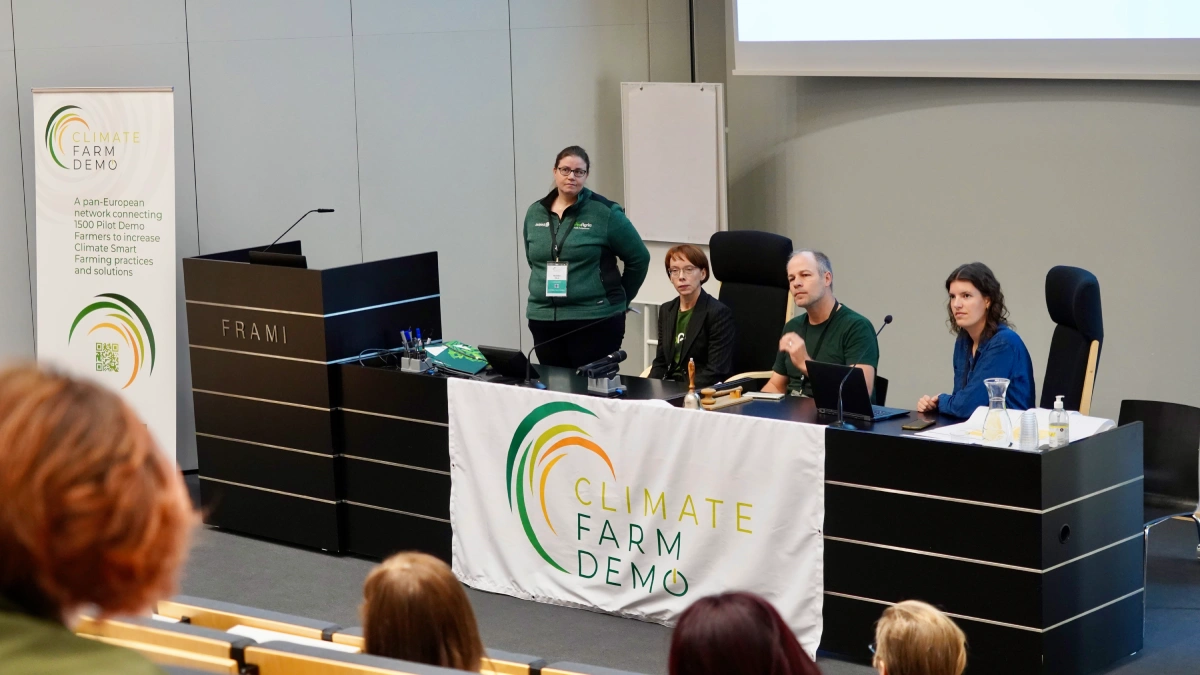
Rewarding mechanisms session: From right to left – Laurène Lebelt, Pascal Python, Henna Latvala, Noora Aila
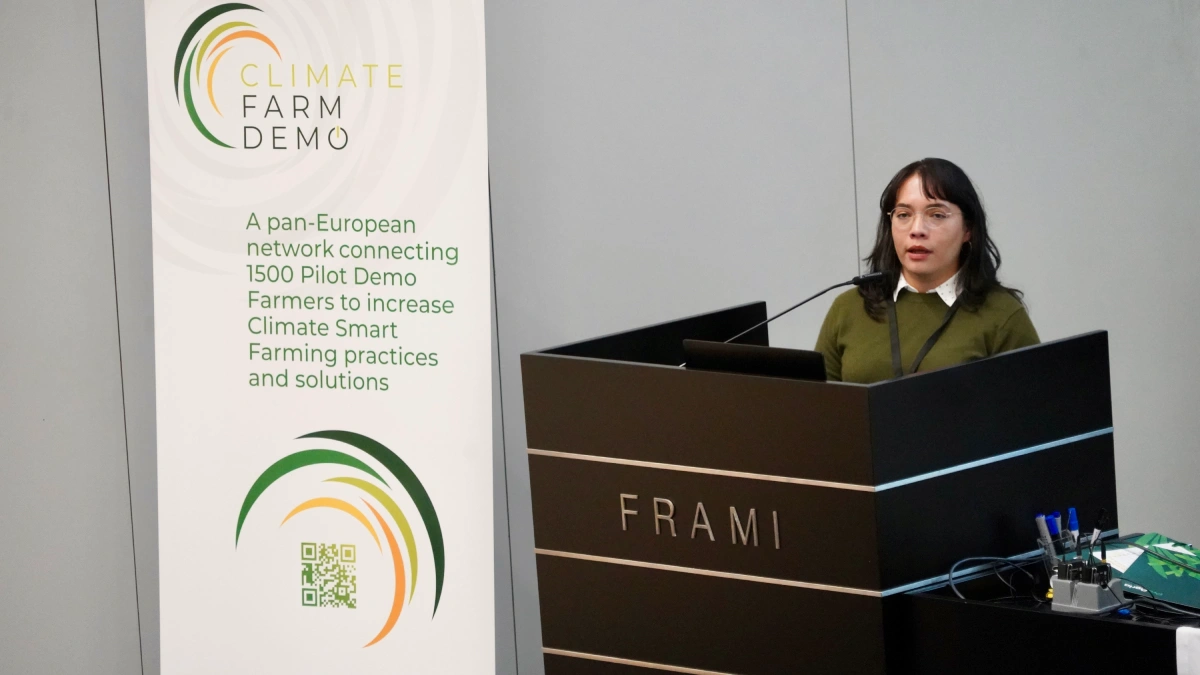
Rewarding mechanisms session, Julia Pazmiño Murillo
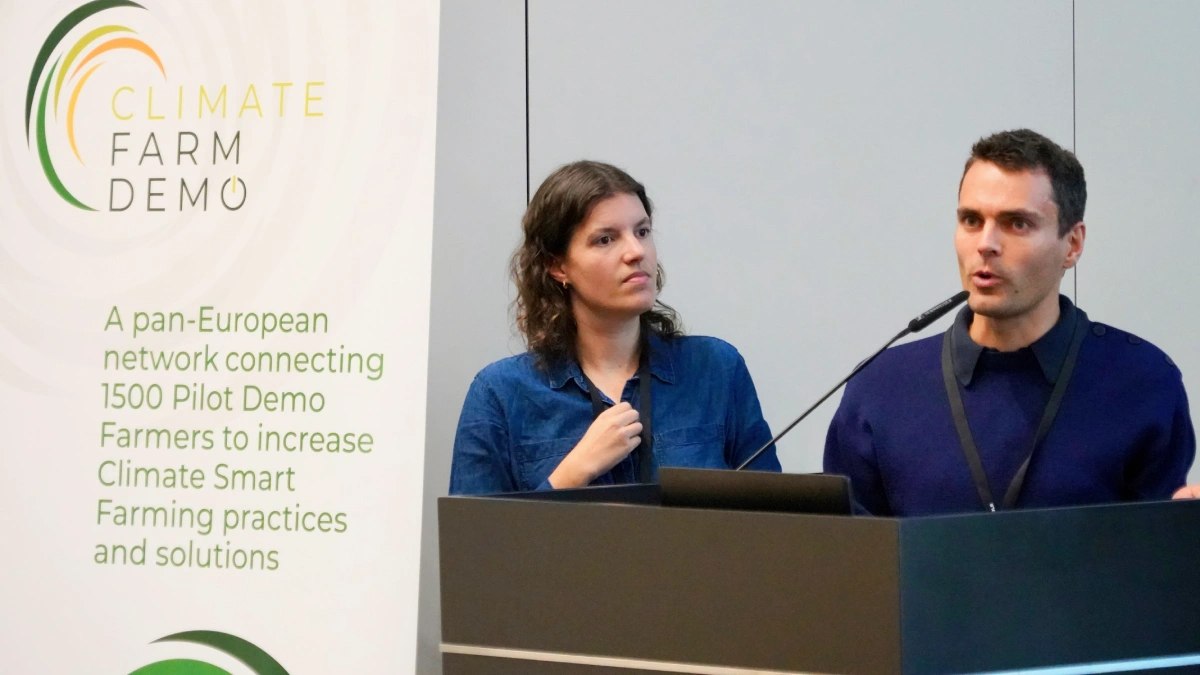
Rewarding mechanisms session, Laurène Lebelt and Simon Martel
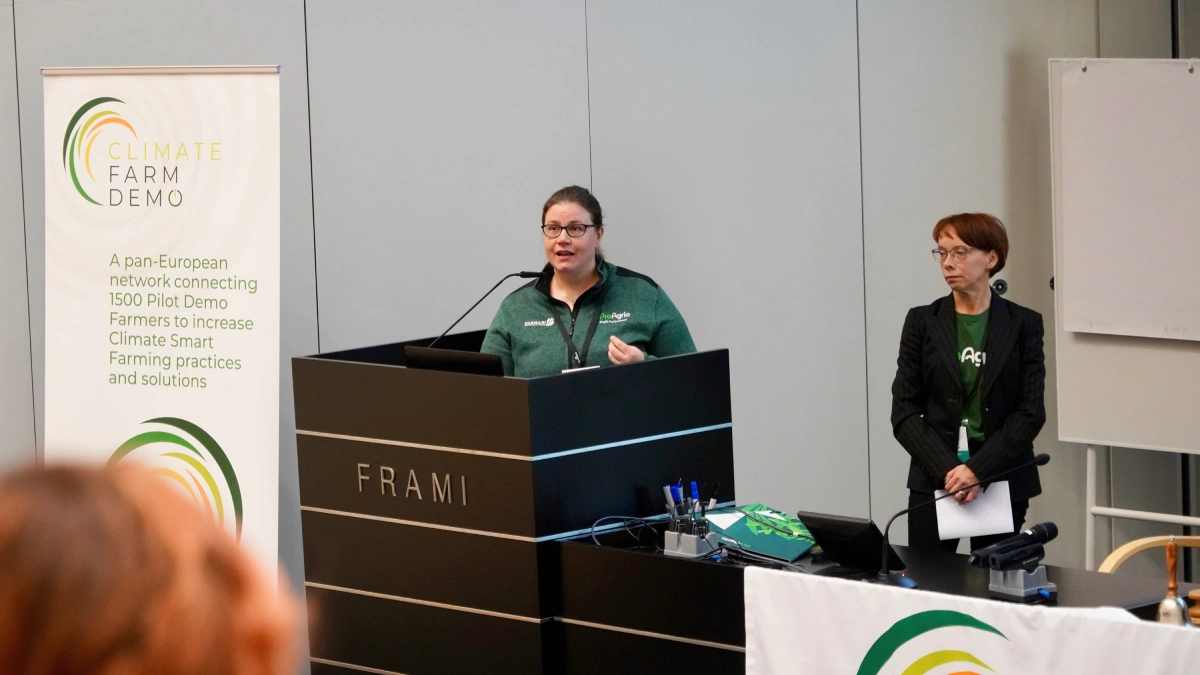
Opening session, ProAgria team Henna Latvala and Noora Aila
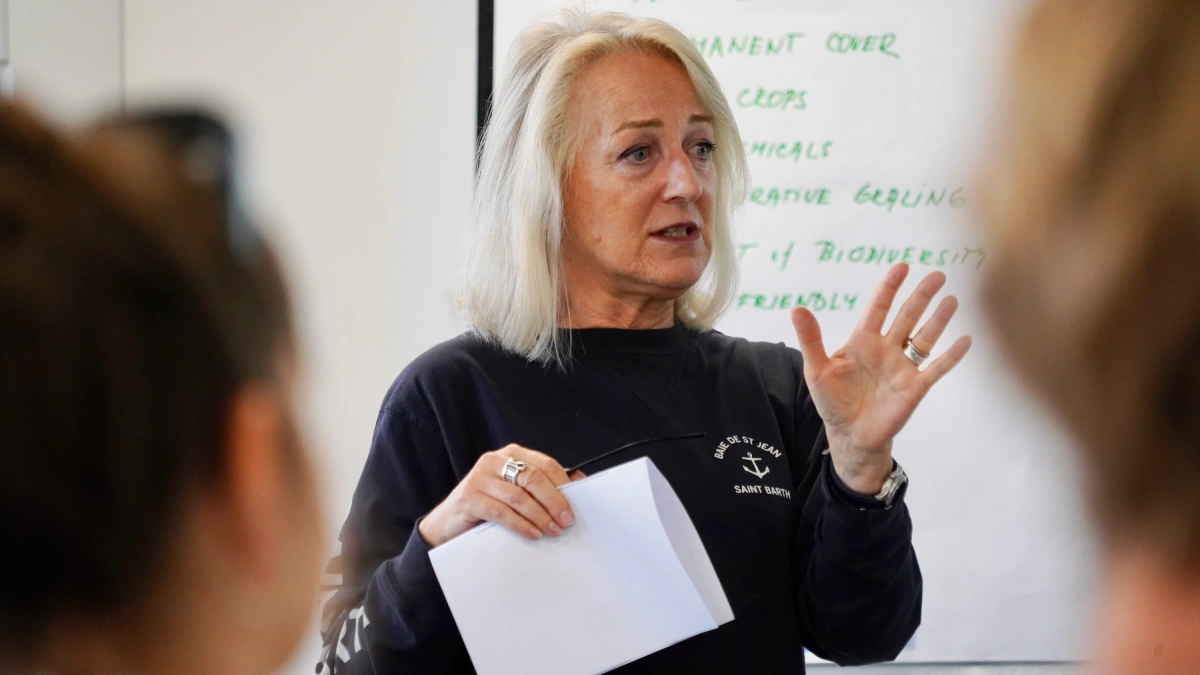
Parallel session, day 2
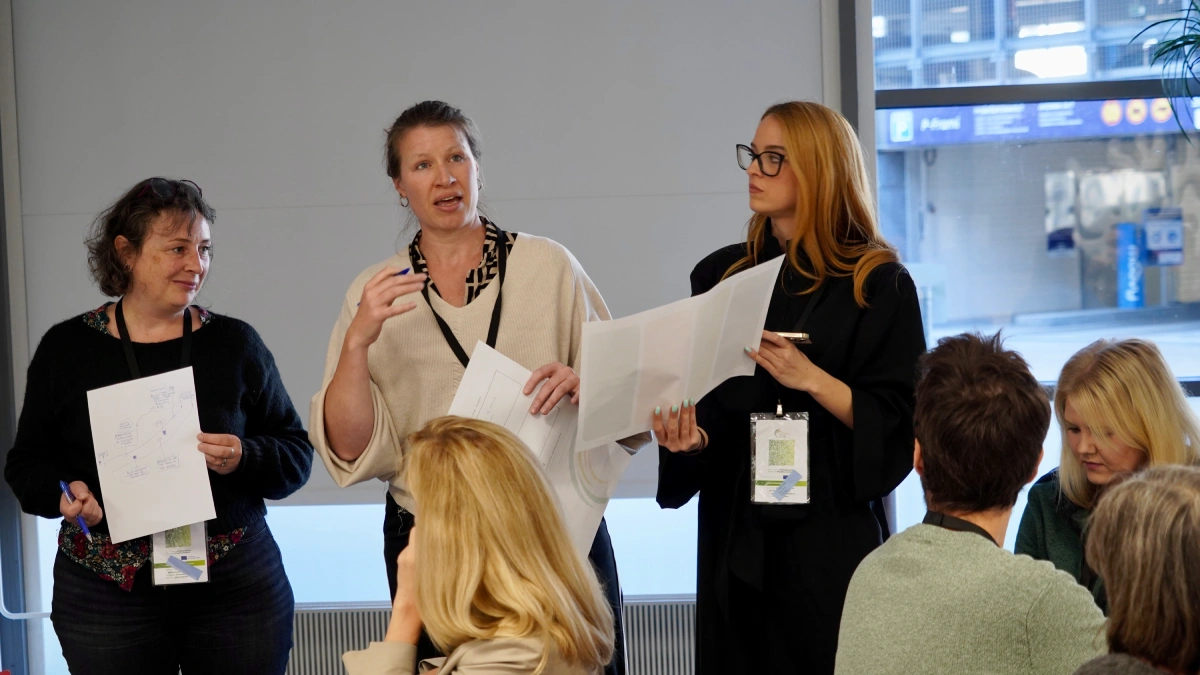
Parallel session, day 2
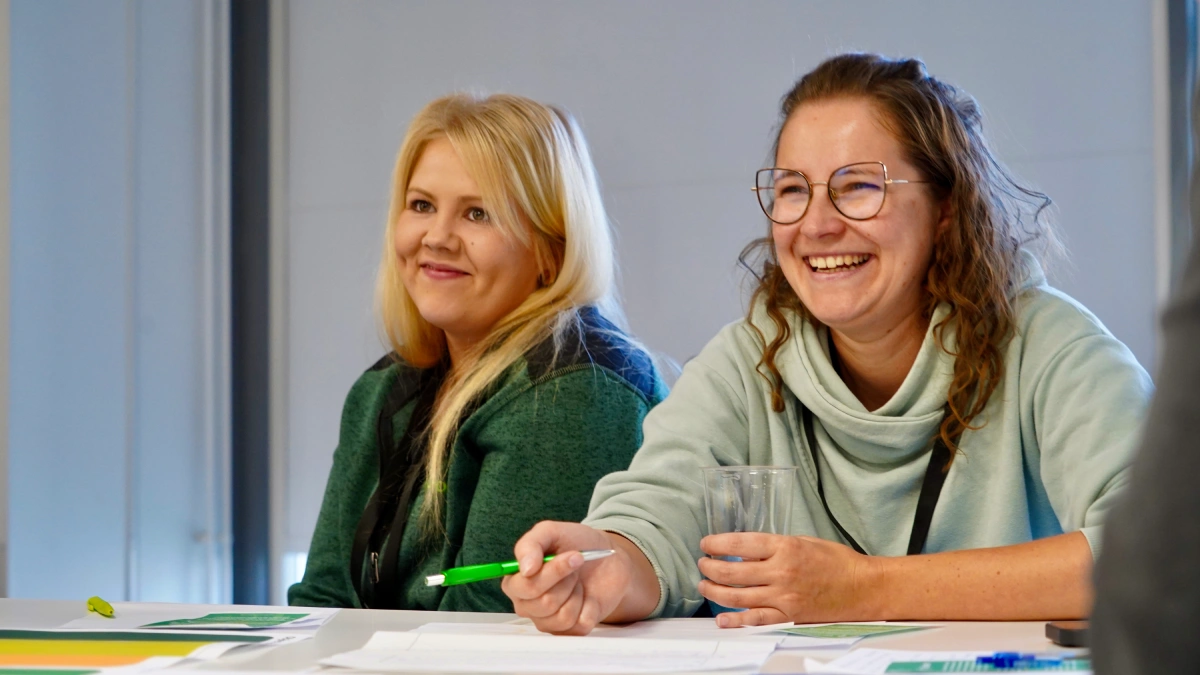
Parallel session, day 2
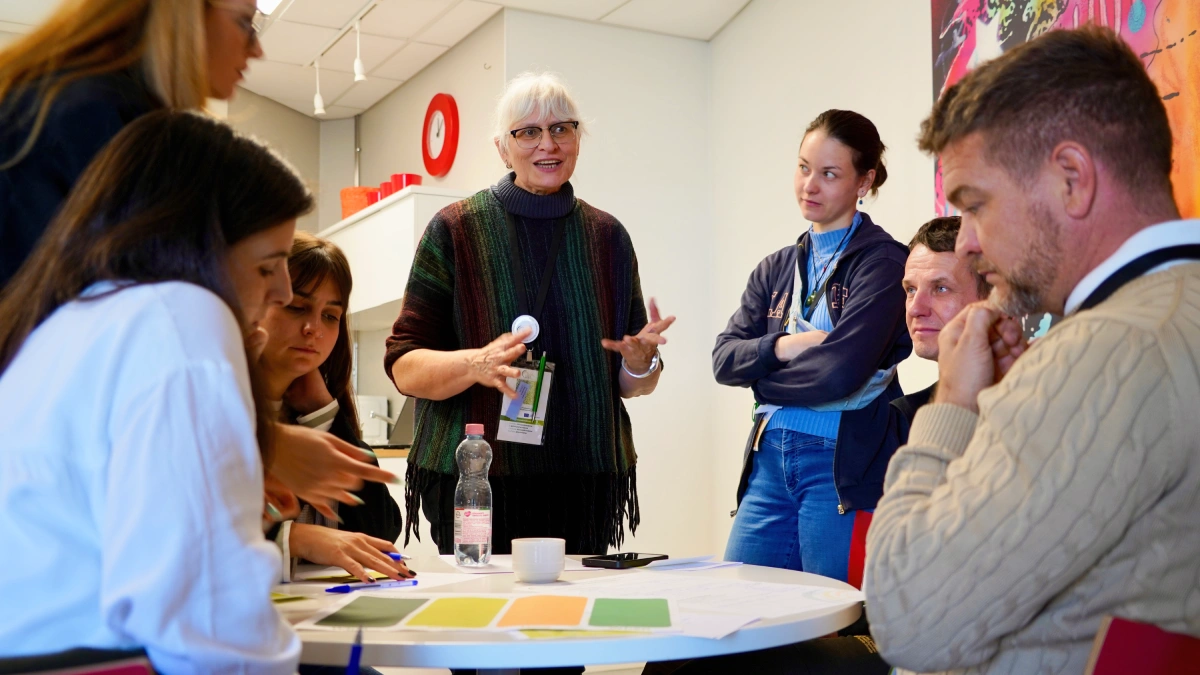
Parallel session, day 2
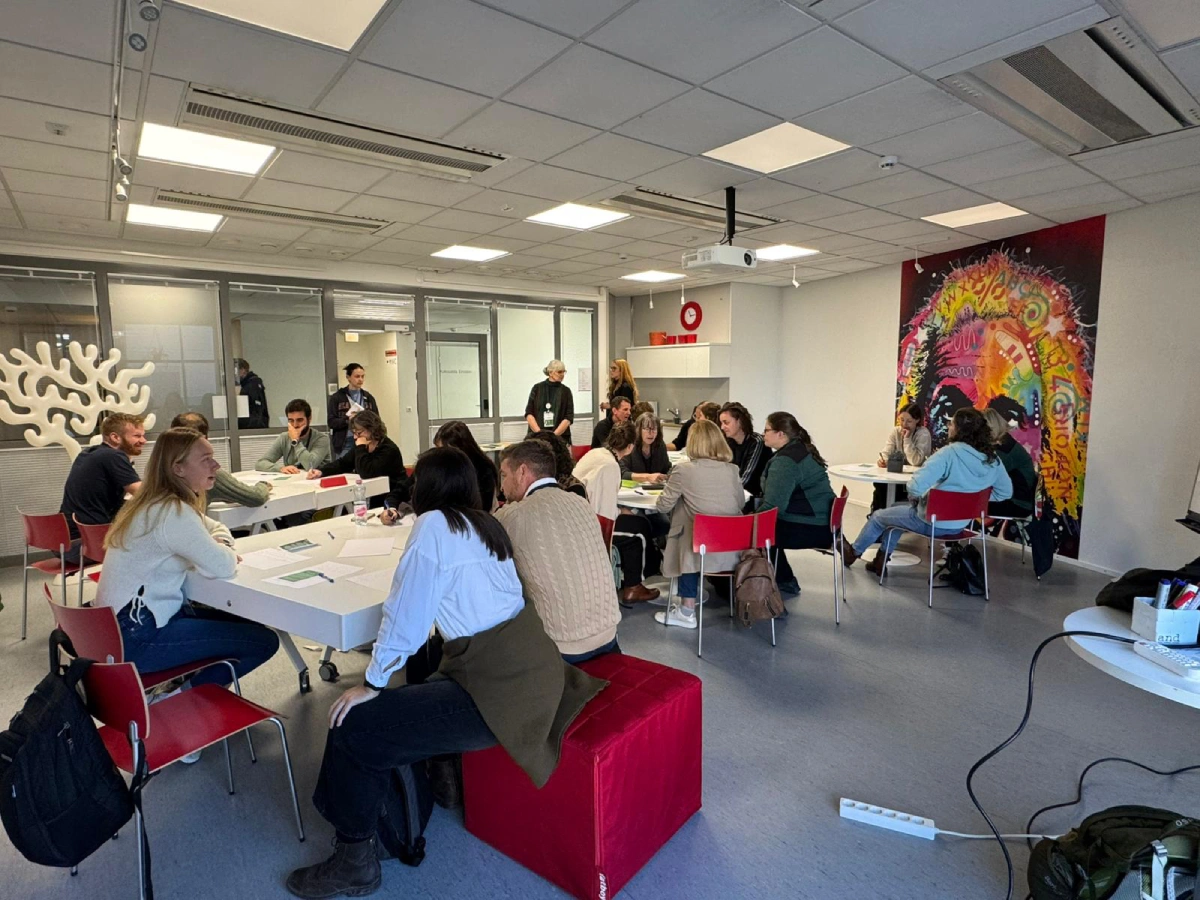
Parallel session, day 2
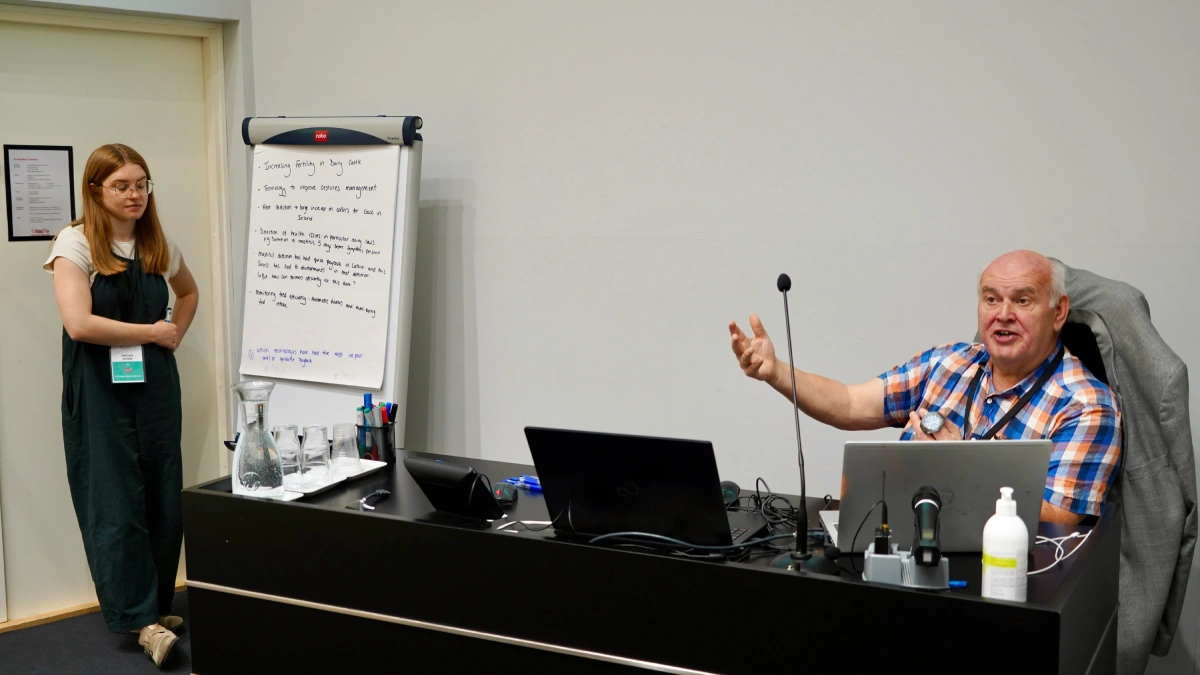
Parallel session, day 2
Day 3 — Reflection, Innovation and Collaboration Ahead
On the final day, John Greaney and Jack Kennedy (Teagasc) led a feedback session, drawing lessons from the four Finnish demonstrations and identifying ways to enhance their impact.
The morning continued with new parallel sessions exploring innovative topics. Maria Alejandra Arias Escobar (Innovation Centre for Organic Farming), Anaïs L’Hôte, and Elena Bortolazzo discussed integrating emerging climate-smart practices into carbon accounting. Maria Suomela (ProAgria) and Federico Dragoni (Leibniz Institute for Agricultural Engineering and Bioeconomy (ATB)) reviewed progress on adaptation and mitigation plans. Herman Schoorlemmer (Wageningen University & Research) led a session on engaging stakeholders and was joined by Dana Simova and Federico Dragoni, who shared examples from living labs in Slovakia and Germany. Sixtine Fauviot and Mélanie Loubaud-Berson (Chambre d’agriculture Pays de la Loire) focused on strengthening knowledge transfer from thematic leaders to advisors and farmers.
The meeting concluded with Herman Schoorlemmer and Maria Mendonça (CONSULAI) presenting the project’s new sister initiative, Climate Smart Research. Together with ClimateSmartAdvisors, it will expand the reach and impact of Europe’s climate-smart farming community.
Before closing, Laurène Lebelt was announced as the winner of the social media contest for the most engaging demo-related post. The consortium also extended heartfelt thanks to ProAgria for hosting the event and to all the facilitators for their contributions.
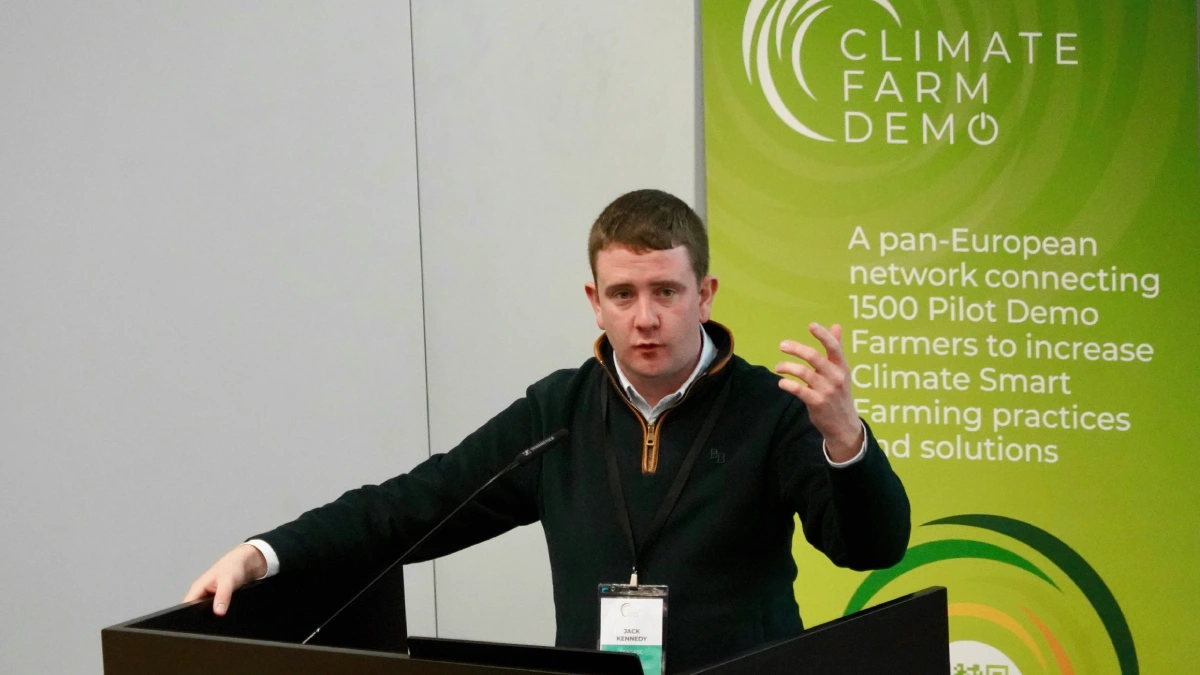
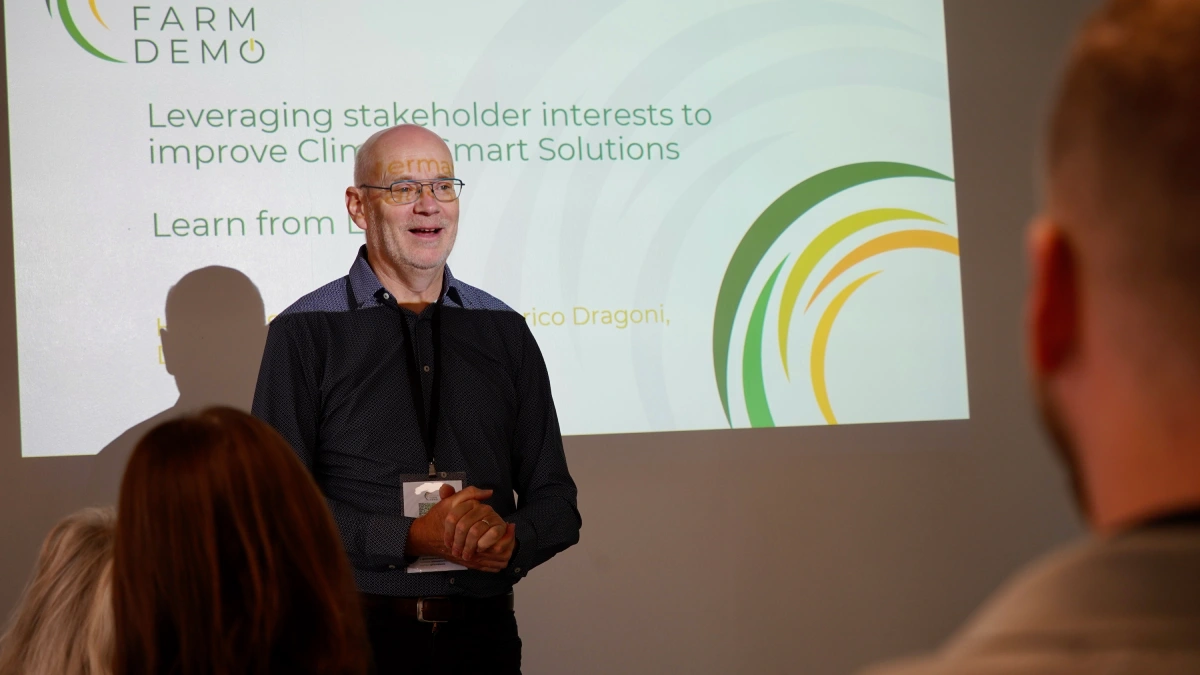
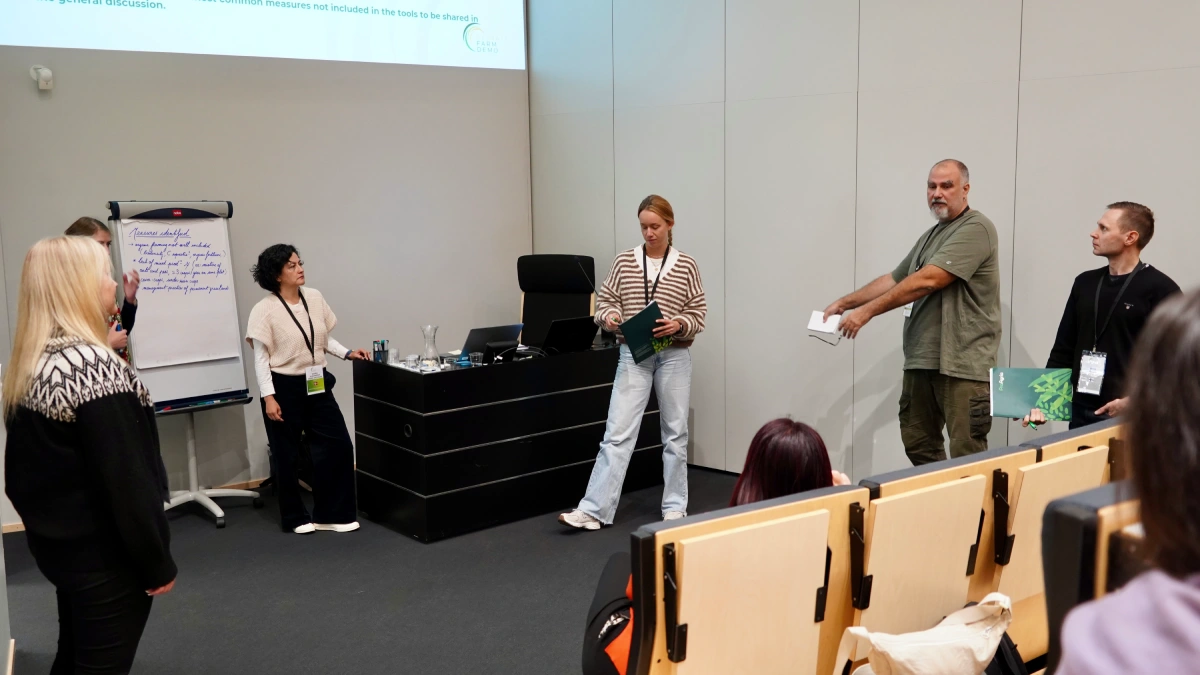
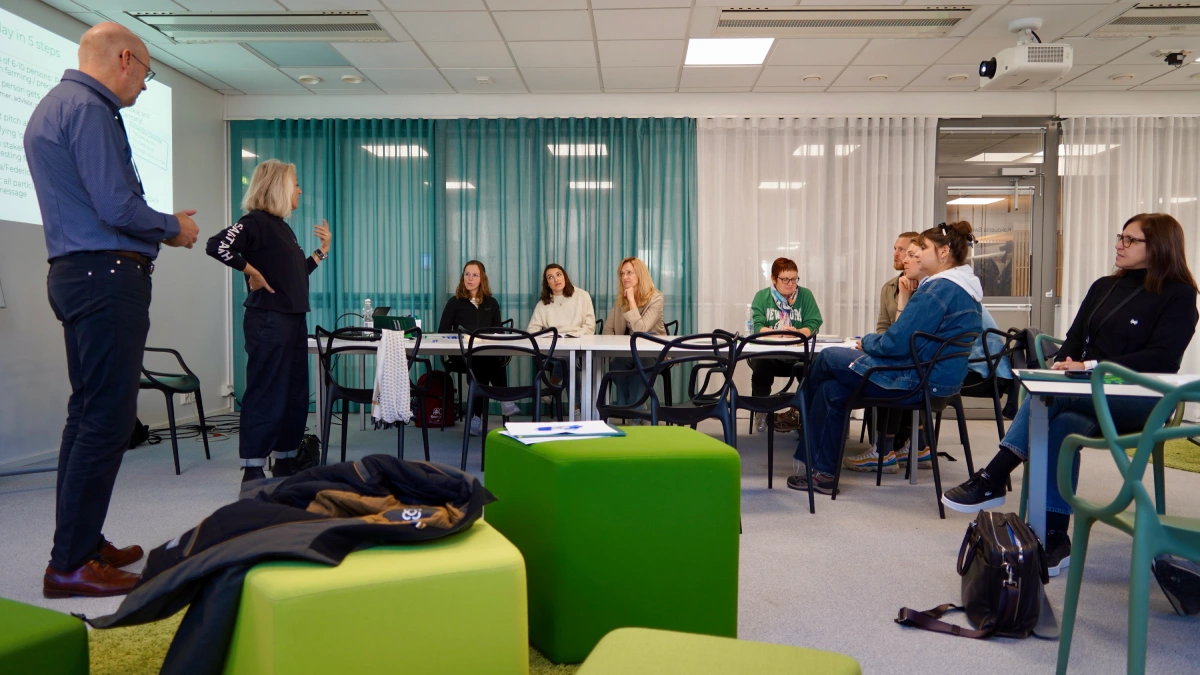
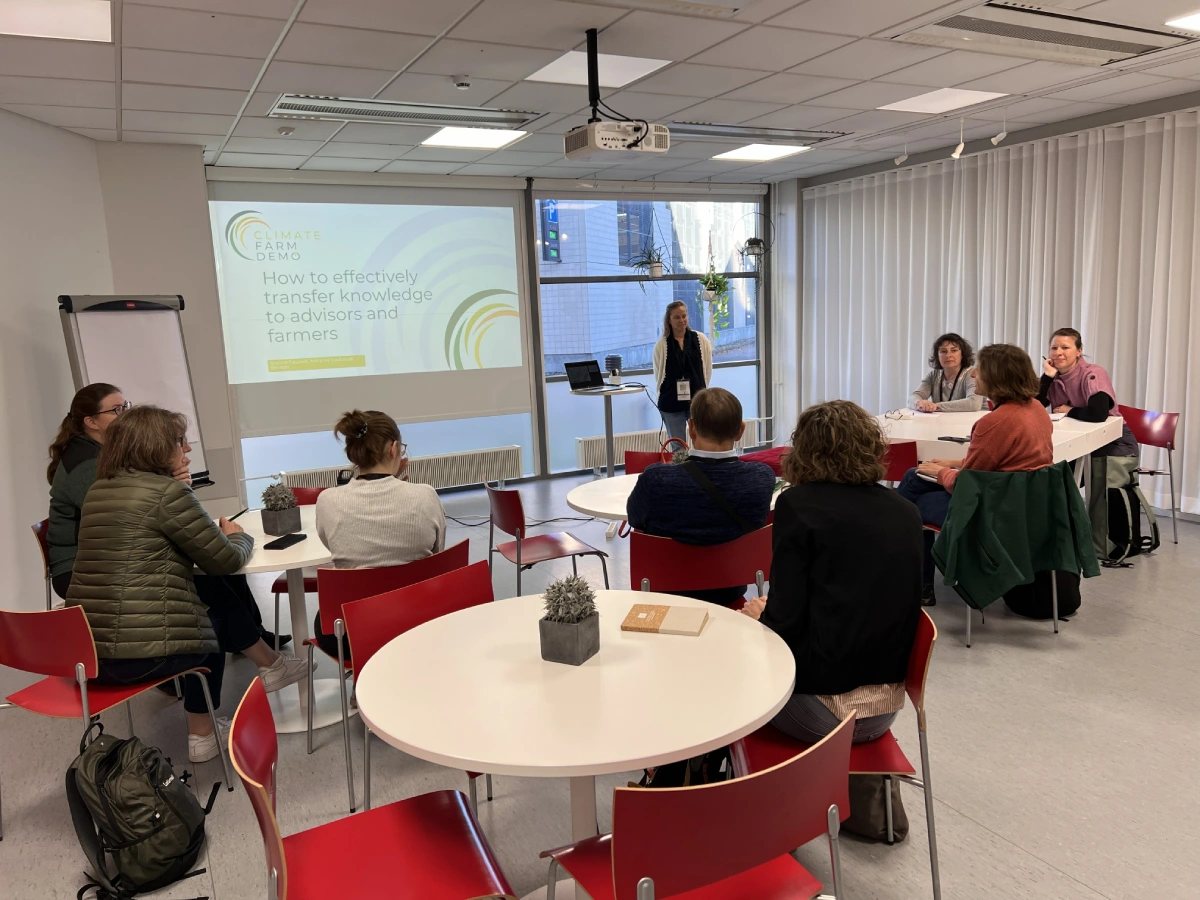
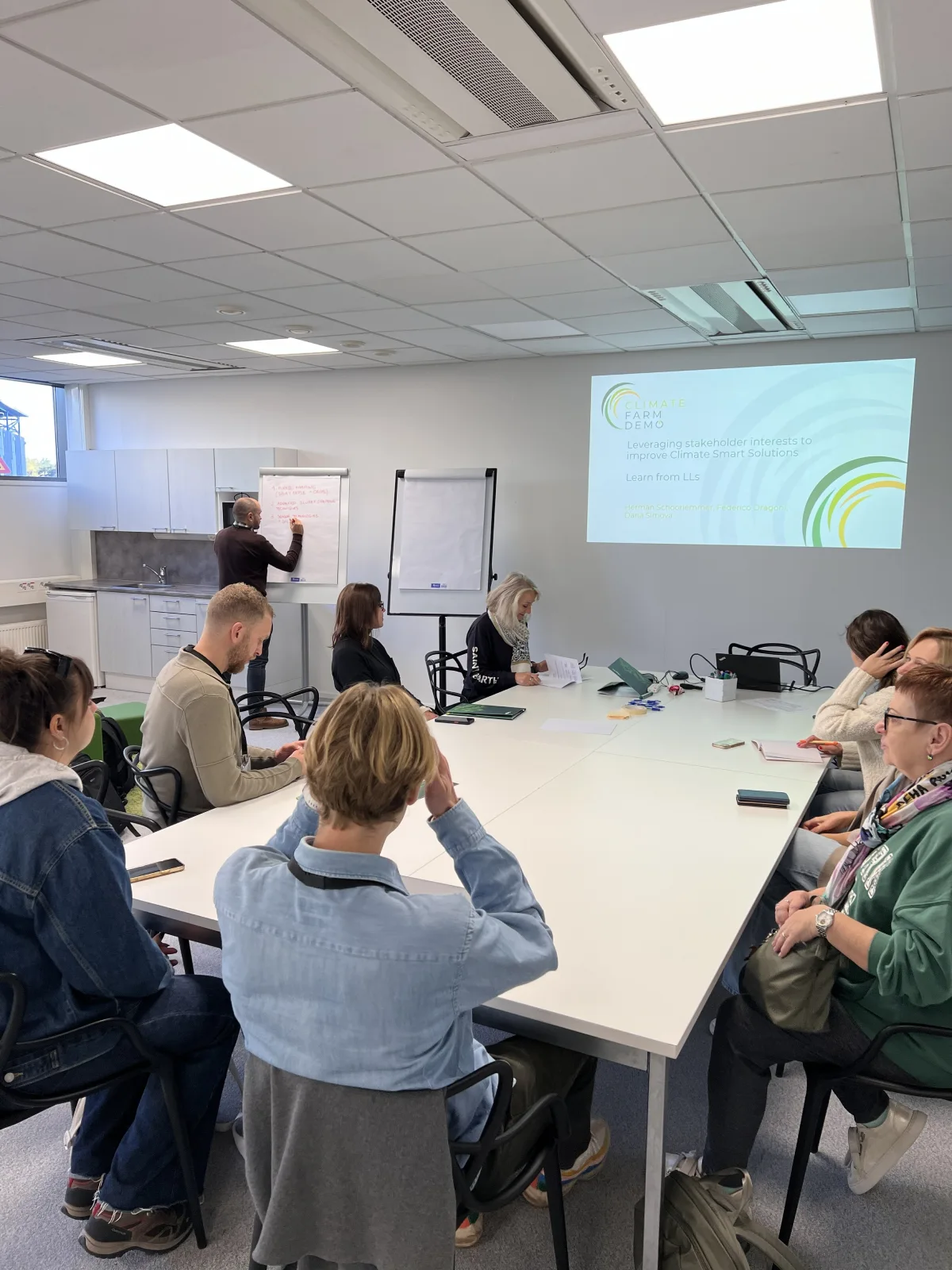
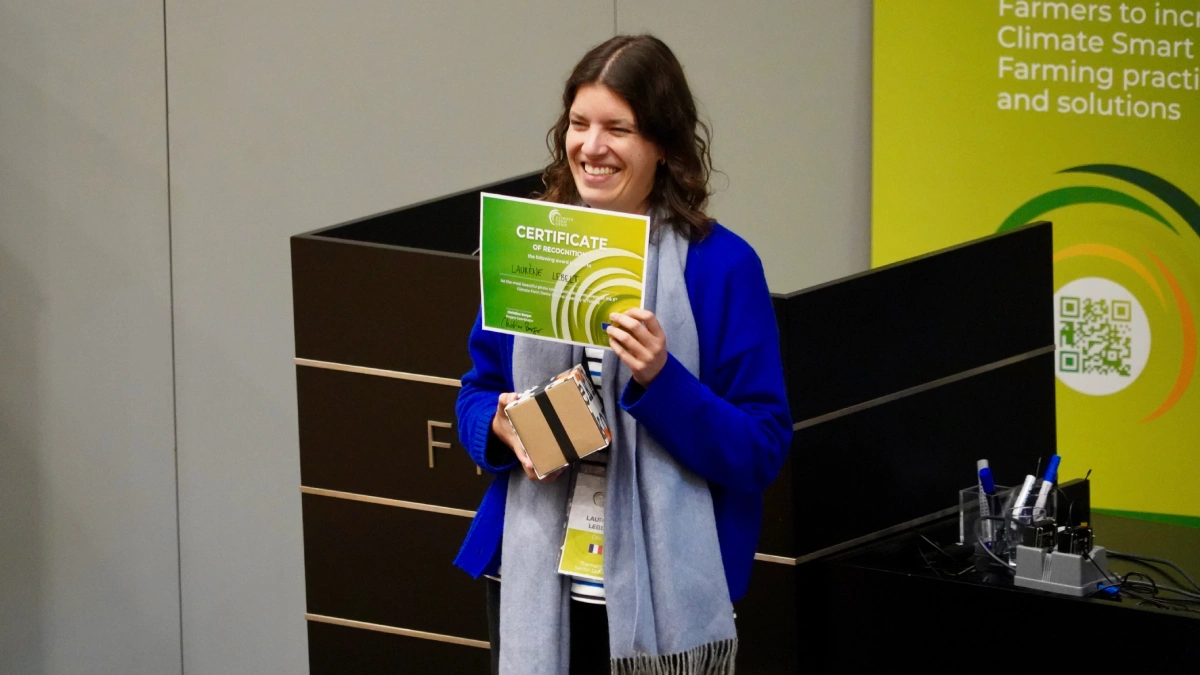
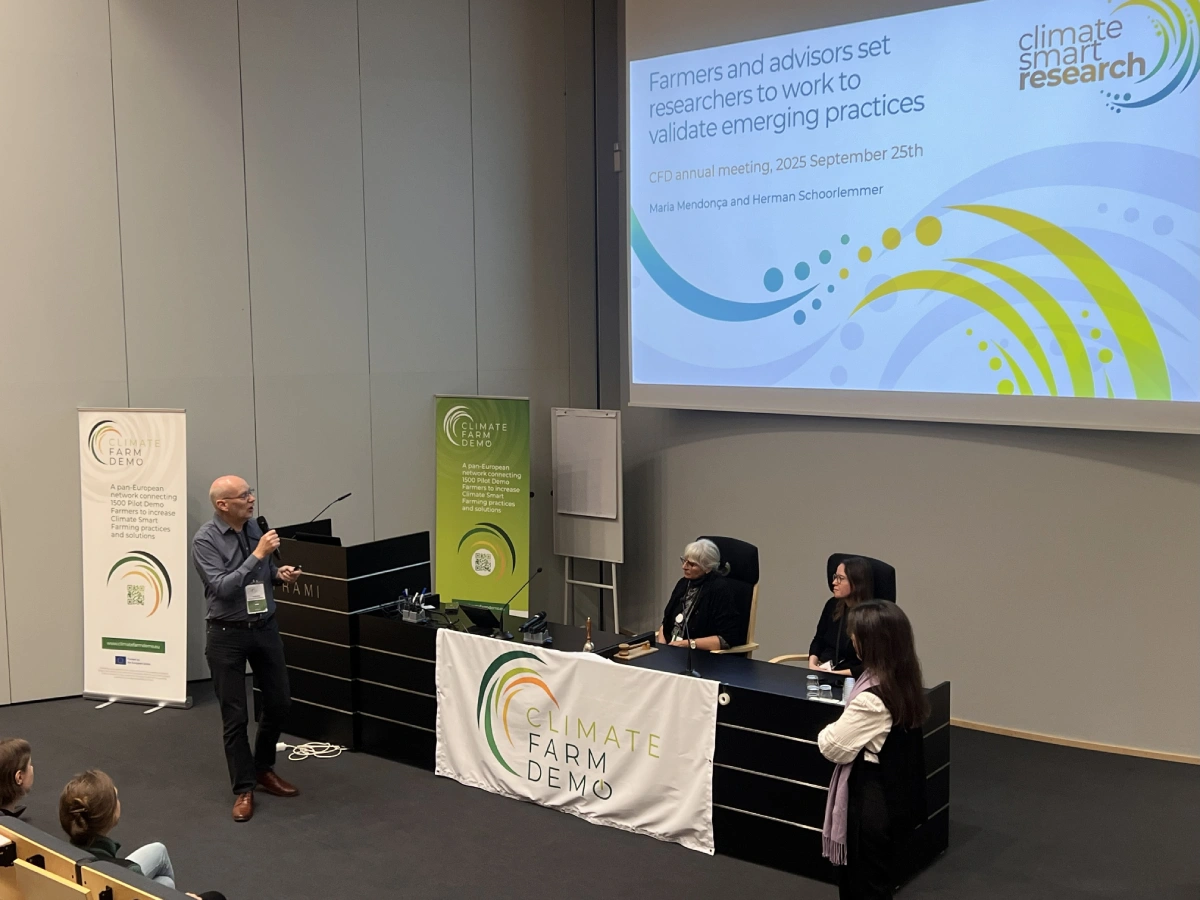
A Shared Path Forward
The 2025 Annual Meeting in Finland reaffirmed the spirit of collaboration at the heart of Climate Farm Demo. Across three days of learning, exchange and reflection, partners strengthened their collective commitment to scaling up climate-smart agriculture – from pilot demo farms to European policy.
“It was inspiring to see how differently countries approach the same challenges,” said one participant. “You leave these meetings not only with new ideas, but with a sense of belonging to a truly European community of practice.”
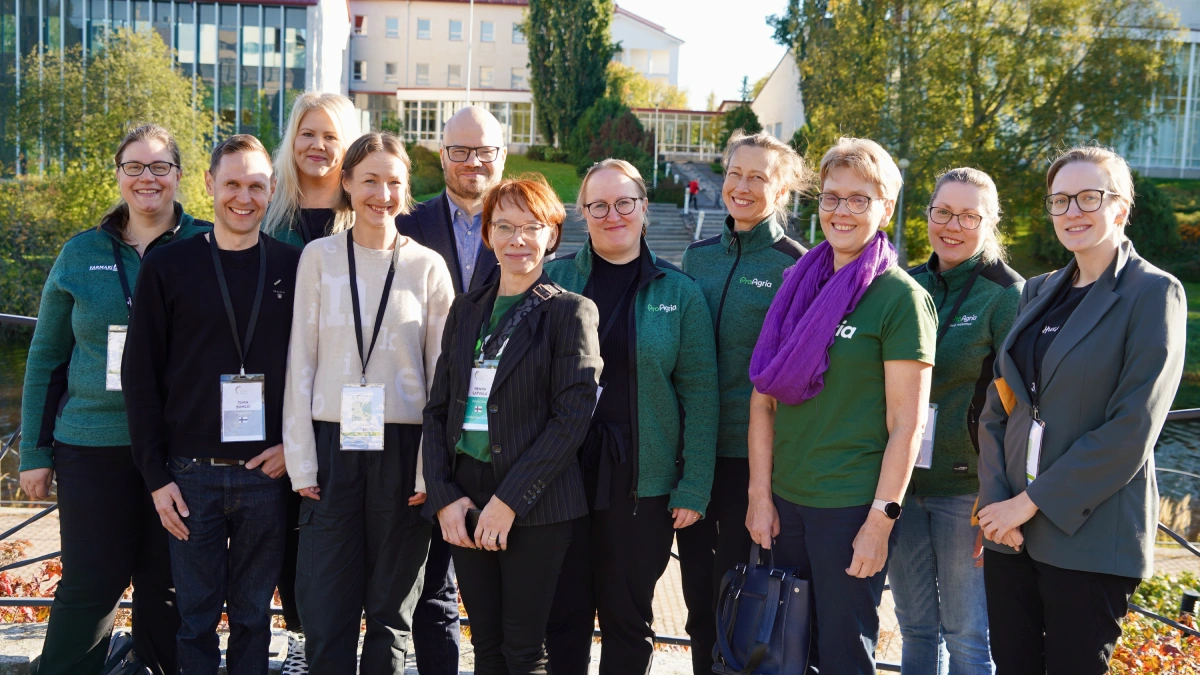
ProAgria team
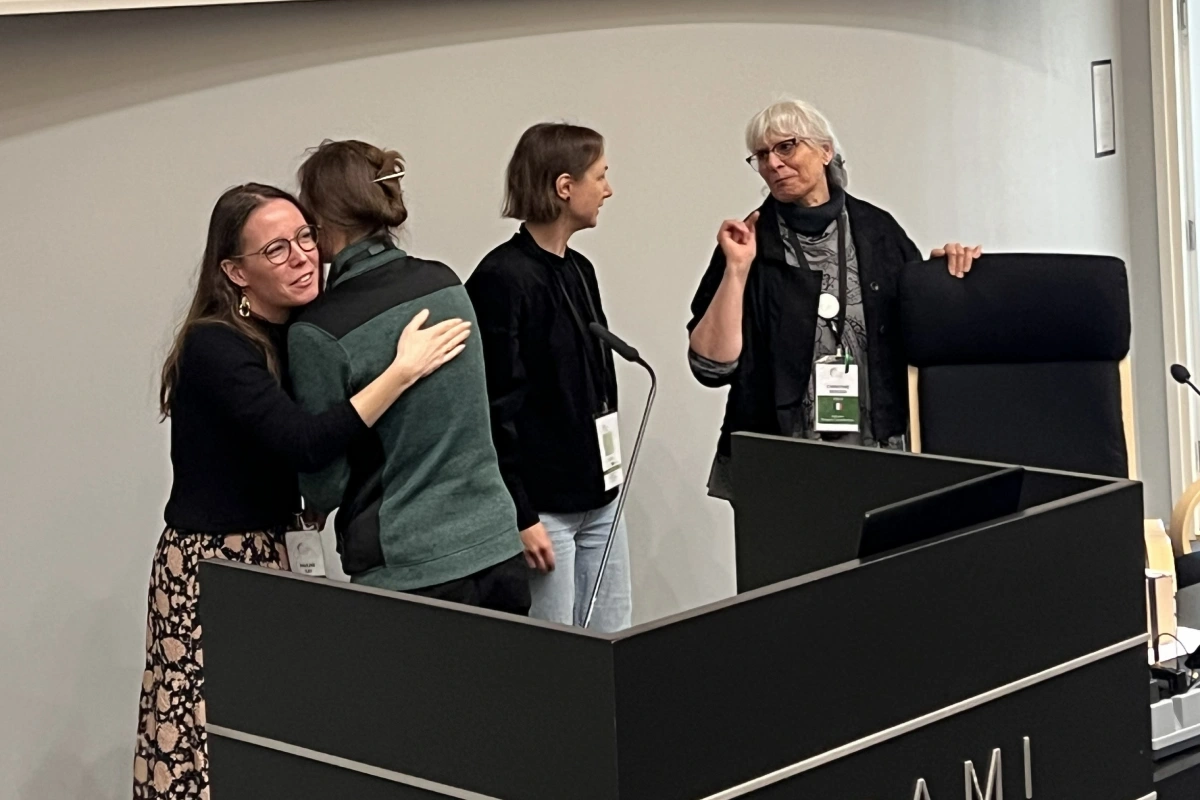
Pauline Gay and Christine Berger with Annika Harlio and Maria Suomela (ProAgria)
Photos by: Thomas Alföldi, FiBL

